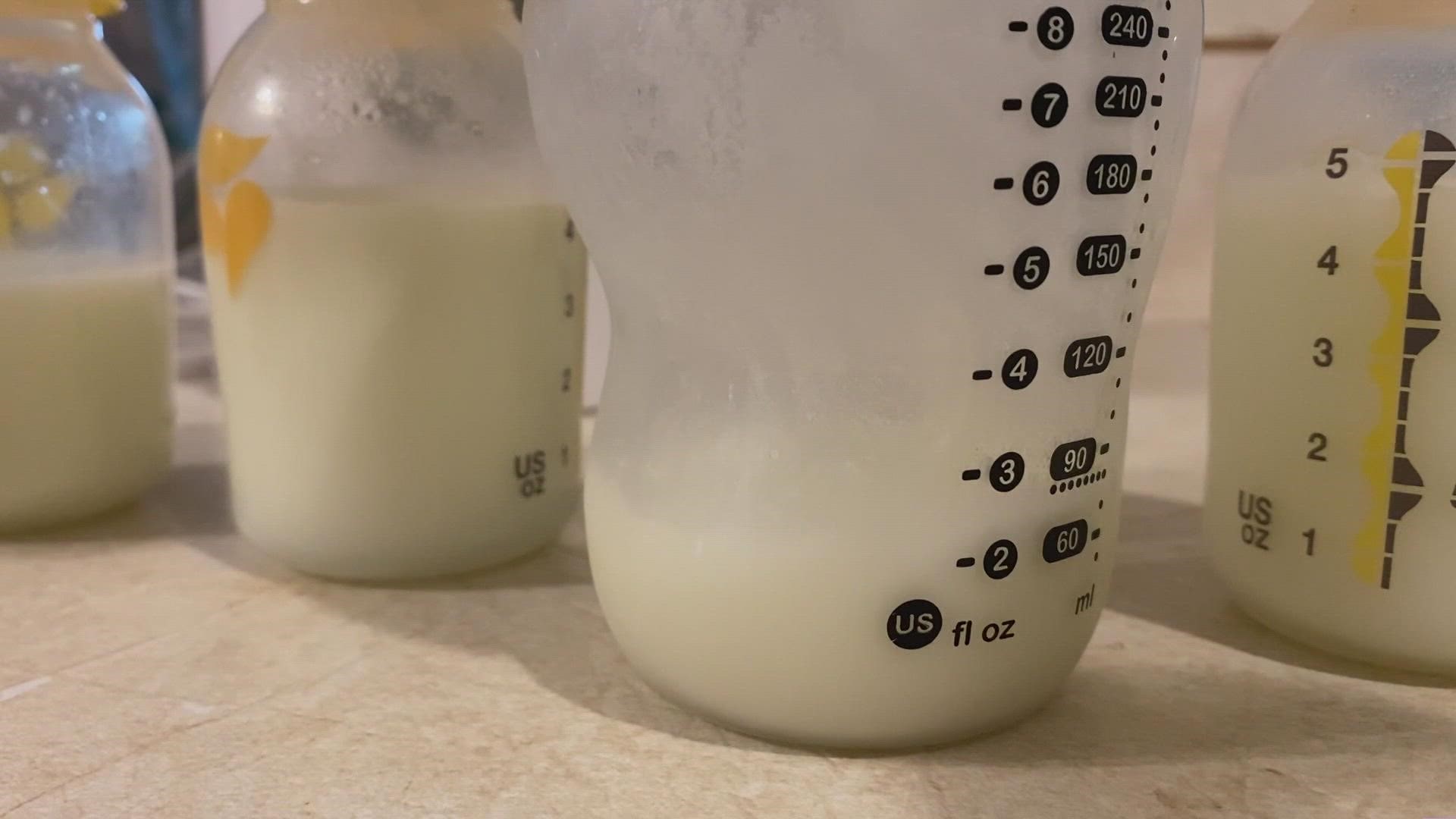NEW ORLEANS — There's concern, worry, and fear as parents frantically try and find formula for their child. Some are even asking for breast milk donations, but health experts say to be cautious of that.
The lack of formula is concerning to many parents, including soon-to-be mom, and New Orleans Mom Writer, Joey Yearous.
"Because if I can't breastfeed, formula is the only option," she said.
She's lately seen social media posts asking for help, including where shelves have been stocked or if anyone's seen a particular brand of formula.
"It's strangers helping strangers because we're all in the same boat," she said.
Some though are going as far as asking for, or offering, breast milk. Yearous, who's already a mother of two, is familiar with milk sharing. She says her son was given breast milk from the Mother's Milk Bank of Louisiana at Ochsner Baptist after he was born. She's also given her milk to close family and friends. She knows there's a risk with it if one doesn't know where exactly it's coming from, but understands why those requests are now being made.
"You don't ever really know what's in someone's breast milk especially if you're getting it from a stranger," she said.
Sharing breast milk is also known as milk sharing. Dr. Harley Ginsberg is the Medical Director of the Mother's Milk Bank of Louisiana at Ochsner Baptist. He says they are receiving phone calls from moms hoping to get some donated breast milk, and calls from those who are willing to donate their supply.
"These moms are phenomenal, they pump religiously and donors are tightly screened," he said. "We've taken moms, they've been vetted, they have blood work, they've passed a written and blood work screenings. Their milk is then pasteurized which means we bring it up to 144 degrees for 30 minutes and bring it back down rapidly which kills off pathogens."
About 2/3 of the milk is for babies in Neonatal Intensive Care Units across the state. One third is used on an outpatient basis in cases where mothers weren't able to pump enough or maybe are taking medications for health reasons and see a drop in supply but the babies don't tolerate formula.
Outside of a milk bank though, milk sharing can get a bit complicated. Dr. Ginsberg says it's a safety issue and adds the American Academy of Pediatrics doesn't recommend it.
"You can have bacteria or viral pathogens such as CMV, Hepatitis or HIV be transmitted via unpasteurized milk from a mom who feels perfectly fine," he said. "She may have no idea she has any infections and has the best intentions in the world and wants to share her milk, and you have these needy babies and so everybody thinks they're doing the best thing until they find out they're not."
Certain drugs, alcohol, medications and herbs ingested could also be present in breast milk. That's why he suggests parents talk with a medical professional first.
"I really think the best solution is to discuss with a pediatrician and that way they can triage and decide how serious this is. Do they (the doctor) want to pick up the phone for the milk bank for a weeks worth of feedings (if we have milk available or are there substitutes?" he said.
Parents are doing what they can to make sure their child gets fed, and if they are asking for donated milk from strangers, it's important you ask as many questions as possible to find out as much as one can about where the milk is coming from. Ginsberg though says he strongly recommends erring on the side of safety because infections that can be found in breast milk can possibly be permanent.
As for Yearous, she hopes the formula shortage will be resolved, that way parents can stop worrying about finding formula.
"When you're a mom you relate to every other mom that's ever existed, you're suddenly apart of this entity and I'm hopeful we'll figure it out," she said.
Dr. Ginsberg says for those interested in donating milk can call 504-703-MILK (6455) for information. It is free to donate. The process to be vetted is free and simple and can happen quickly.

